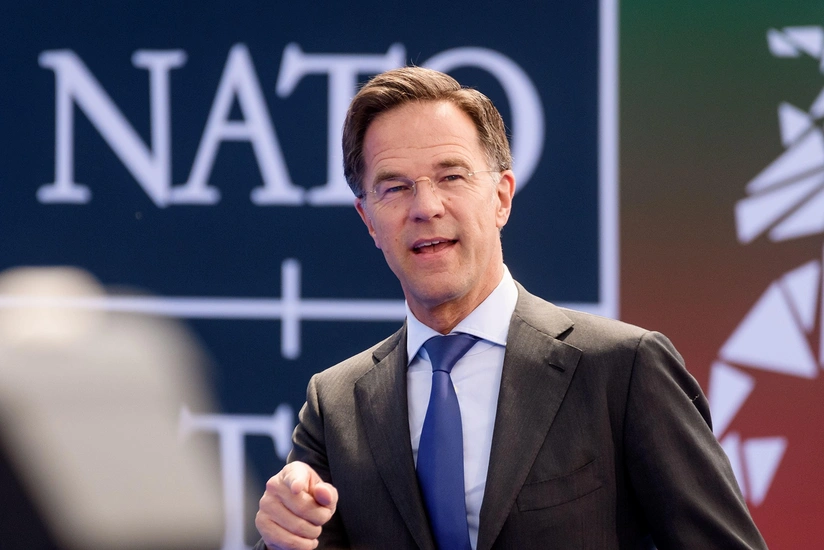NATO's Rutte visits Kyiv in maiden trip as alliance chief
- 03 October, 2024
- 11:41

NATO's new chief Mark Rutte visited Kyiv on Thursday, a major show of support for Ukraine in his maiden trip in the role, Report informs via AFP.
Kyiv relies on billions of dollars in Western military aid to fight the Russian invasion, with the NATO Secretary-General a powerful voice corralling support for Ukraine on the global stage.
Taking over the role on Tuesday, the former Dutch prime minister steps in at a pivotal moment, with Russia advancing on the battlefield, China flexing its growing might, and just weeks before US voters choose a new leader.
A staunch backer of Ukraine who has visited the country several times since Russia invaded, Rutte has pledged NATO will continue its support under his stewardship.
"Putin has to realise that we will not give in, that we want Ukraine to prevail in the end," he said upon taking the role.
He also said he wanted to "step up our support for Ukraine and bring it ever closer to NATO."
Ukrainian President Volodymyr Zelenskyy has welcomed Rutte's appointment.
"Ukraine's course toward NATO membership is irreversible, and we remain committed to that goal," he said on Tuesday.
Rutte's government in the Netherlands was one of Kyiv's most important European backers, a major driving force pushing for advanced F-16 fighter jets to be delivered to Kyiv.
Rutte was also prime minister when Malaysia Airlines flight MH17 was shot down over Ukraine in 2014, killing 298 people, the majority of them Dutch.
He said the crash "changed my personal view of the world" and made him all the more determined to support Ukraine, "for their security and ours."
But it is NATO members, not the alliance itself, that calls the shots on supplies of much-needed military hardware and ammunition to Kyiv.
Zelenskyy has said that without Western aid Ukraine has no chance of winning the war. He has also chided delays in shipments and criticised restrictions that he says limit Kyiv's ability to hit back.
Ukraine is currently pushing the United States to allow its army to fire Western-supplied missiles on military targets inside Russia.
Cautious to avoid a possible escalation, Washington has been hesitant to give the green light.
